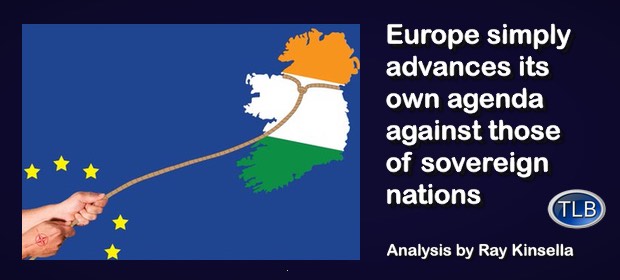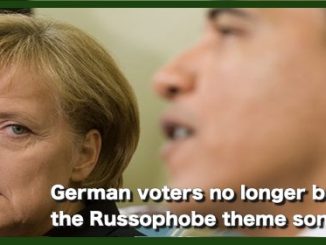
Why Ireland should seriously consider Irexit
EU is a hegemonistic and increasingly militarised political behemoth controlled by Germany
RAY KINSELLA
We need to talk about Irexit. Seriously. If you put your head around the door of any of the innumerable meeting rooms in which all things Brexit are being dissected, the one word that dares not speak its name is Irexit. The foolhardiness of the Brits? Yes. How badly organised and divided they are? Of course. How unrealistic their expectations are? Certainly.
With a few distinguished exceptions, “official” Ireland has bought into the “spin”’. It has made the European Union the custodian of our national interests. It has ceded its responsibility for negotiations on our future relationship with our nearest neighbour and largest single-country trading partner. This makes no sense. The risks of trading the approval of “Europe” for the long-term interests of the country are enormous.
Behind the charade of a “unified stance” on Brexit is a deeply divided EU with competing national agendas which have been whipped into a facile unanimity. The pressure not to break ranks is huge. In his acclaimed book Adults in the Room: My Battle With Europe’s Deep Establishment, former Greek minister for finance Yanis Varoufakis documents the devastating reality of such pressures.
Because what the UK is exiting is not Europe but what Europe has become. Tragically, it is not the Europe of Schumann and Monnet or even Jacques Delors.
It is a hegemonistic and increasingly militarised political behemoth, controlled by Germany and, to a lesser extent, by a Franco-German identity of interests. Europe is bound together by an oppressive dependency on the centre. Political scientists know that even the largest of other countries play in the reserves.
Founding values
Europe’s identity and its founding values have been scarred by the macroeconomics of austerity and an unprecedented migration catastrophe caused, in part, by its support for military adventurism in the Middle East and North Africa.
At its heart is a flawed monetary union, skewed towards surplus countries and a yawning “democratic deficit”. Brexit should have been the catalyst for reform. Instead, freed for the moment of the threat of “populism” generated by its own policies, the establishment has pulled down the shutters on reform. It is now impelling members towards full political union and, beyond that, further supra-national enlargement.
Brexit means Ireland, which shares a common stance on key issues with the UK, is left marginalised, peripheral and dependant. That reality bears reflecting upon.
The core responsibility of any sovereign nation is to protect the national interest. Down the road, who will uphold and advocate Ireland’s national interests? Whatever the nature of the post-Brexit governance of Europe, little consideration will be given to Ireland’s needs and its capabilities. How could they be? On all issues that matter, the centre will advance its own agenda.
Amnesia can be a terrible thing. It is only prudent to remember that in the bailout negotiations the European Central Bank (ECB) cut the ground from underneath Ireland when we were at our most vulnerable. Ajai Chopra, then IMF mission chief, recalls it was the International Monetary Fund – not Europe – that advocated against the harshness of the adjustment which the ECB attempted to impose and, also, ECB pressure to impose on Ireland losses that should have been borne by the bondholders of delinquent banks. The threats of what would happen if Ireland did not come to heel came from Europe.
CONTINUE READING HERE
ER recommends other articles by The Irish Times
About the author
Ray Kinsella is an economist and former Professor of Banking and Financial Services, and Healthcare at UCD Michael Smurfit Graduate School of Business




